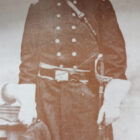Events
Historical society offers summer tours
|
Looking for something to do now that school is out for the summer? Why not come to the Salmon Brook Historical Society on a Sunday afternoon and learn about the history of the town we live in? Tour the society’s five buildings to see how Granby has evolved to what it is today.









